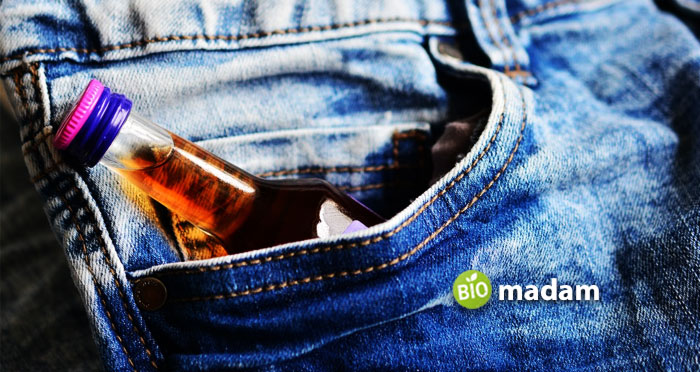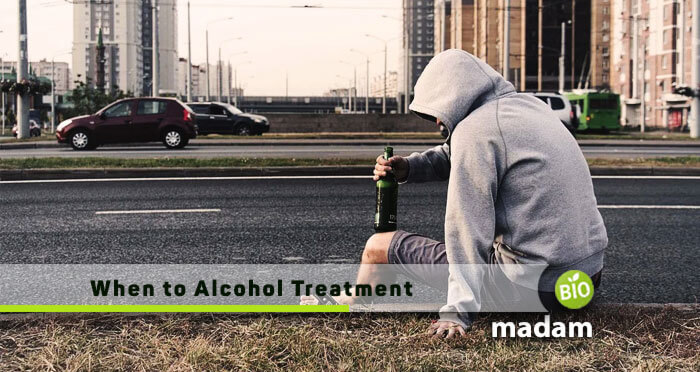Recently updated on October 5th, 2023 at 07:03 am
Having a drink every now and again can be a normal part of life for many people – but when does this go from being enjoyable to being a serious problem? As with any addicting substance, the longer you use it and the more reliant on alcohol you become can lead to serious problems. The line between having a drink every now and again and having an alcohol problem isn’t always clear, but there are some signs that it’s time to consider treatment.
1. Choosing Activities Based Around Drinking Opportunities
Most people drink in social situations. Perhaps you’re having a drink while talking with a friend you haven’t seen in a while, during a family celebration, or during a night out. But if you’re choosing to do things specifically so there’s drinking involved, this could be a sign that the drink may have become more of a priority for you than it should be.
It’s not even uncommon for people with a drinking problem to start choosing who they spend time with based on how likely that person is to drink with them. As the rehabilitation experts from Hillcrest Recovery note, addiction is encouraged by a negative environment. In other words, that new group of friends you just seem to be really hitting it off with – they might be making your problem even worse. Take a good look at your past week, month, or longer – how often did the thought “will I be able to drink there” cross your mind when creating plans? If the answer is more than once, it might be time to seek help.
2. Fighting with Friends and Family

Everyone argues with their friends and family at times, but if fighting about how much you drink has become its own problem, it might be time to quit. The alcohol itself isn’t necessarily the direct cause of these arguments – it could just be that your drinking has resulted in problems elsewhere.
For example, perhaps you’re late to events because you’re hungover or you’ve been drinking a lot and it’s becoming obvious. Maybe your loved ones express concern about your health. If you find that people who care about you are constantly disappointed, angry, or feel like they’re walking on eggshells around you because of the amount of alcohol in your life, it might be time for some help.
3. Getting Agitated if You Don’t Drink
When you have a dependency, quitting can seem nearly impossible. If you’ve tried to quit drinking before, you likely understand what it feels like to crave the alcohol in your system again – but if this feeling of panic is becoming overwhelming and starting to make you feel agoraphobic or otherwise uncomfortable, it might be time to go to treatment. If you feel like you need alcohol in order to get out of bed or go about your daily life, or if you feel panicky at the thought of not having it around, that’s a sign that quitting might require more than just willpower.
However, before the more serious symptoms arise, you might simply feel agitated when you’re sober. People can seem more annoying, activities get boring quickly, and you might find you’re becoming prone to mood swings. All of these are signs that you should at least talk to a professional to get a better feeling of where you’re at mentally.
4. Glamorizing Alcohol in Your Life
The word “party” gets thrown around a lot in the context of alcohol, and when you’re trying to have a good time, it’s easy to see why. For many people with a drinking problem, though, it becomes difficult to separate the concept of partying from the act of drinking. The two just seem to go together, and it’s hard not to glamorize that sort of lifestyle when you’re in the middle of it all.
This is why it can be helpful to spend some time away from alcohol – if you’ve decided that enough is enough, there are ways you can prepare yourself mentally for quitting. For example, you could spend a few days writing out some memories from nights you’ve had while drinking, and then try to put the alcohol in perspective.
You might also want to consider avoiding going out while you’re still recovering from your last hangover or illness that was brought on by drinking too much – this will help give you a fresh start, and it’ll be easier to resist temptation.
5. Making Deals with Yourself
Do you find that you’ve been making deals with yourself to skip drinking today, or just have a beer and no strong drinks, or just having one strong drink, and so on until you’ve gone back on every single one? If so, you might need to seek some help – it’s clear that the “just one” mentality isn’t working and that you aren’t in control anymore.
These deals are often effective for a very short period of time, meaning the person who makes them often doesn’t think they’re breaking their own rules when they go back on their word. This can lead to even bigger problems with alcohol later on, which is why it’s important to seek help if you’re getting in your own way like this.

While these are some of the more obvious symptoms you should go to treatment for alcohol abuse, there are plenty of others not mentioned in this article. As a general rule, if you’ve ever stopped to wonder whether you were overdoing it or not, it would be advisable to find a therapist that specializes in addiction treatment you can talk to and get a fair assessment.

Hi, they call me Jenna, and I am also known for achieving a gold medal during my Ph.D. in science life. I always had a dream to educate people through my utmost writing hobby. So, I chose this blogging path, and Biomadam gave me this opportunity to present for them. I now stand to entertain you. Continue reading my articles & discuss if you’ve any confusion through the comment section below.

